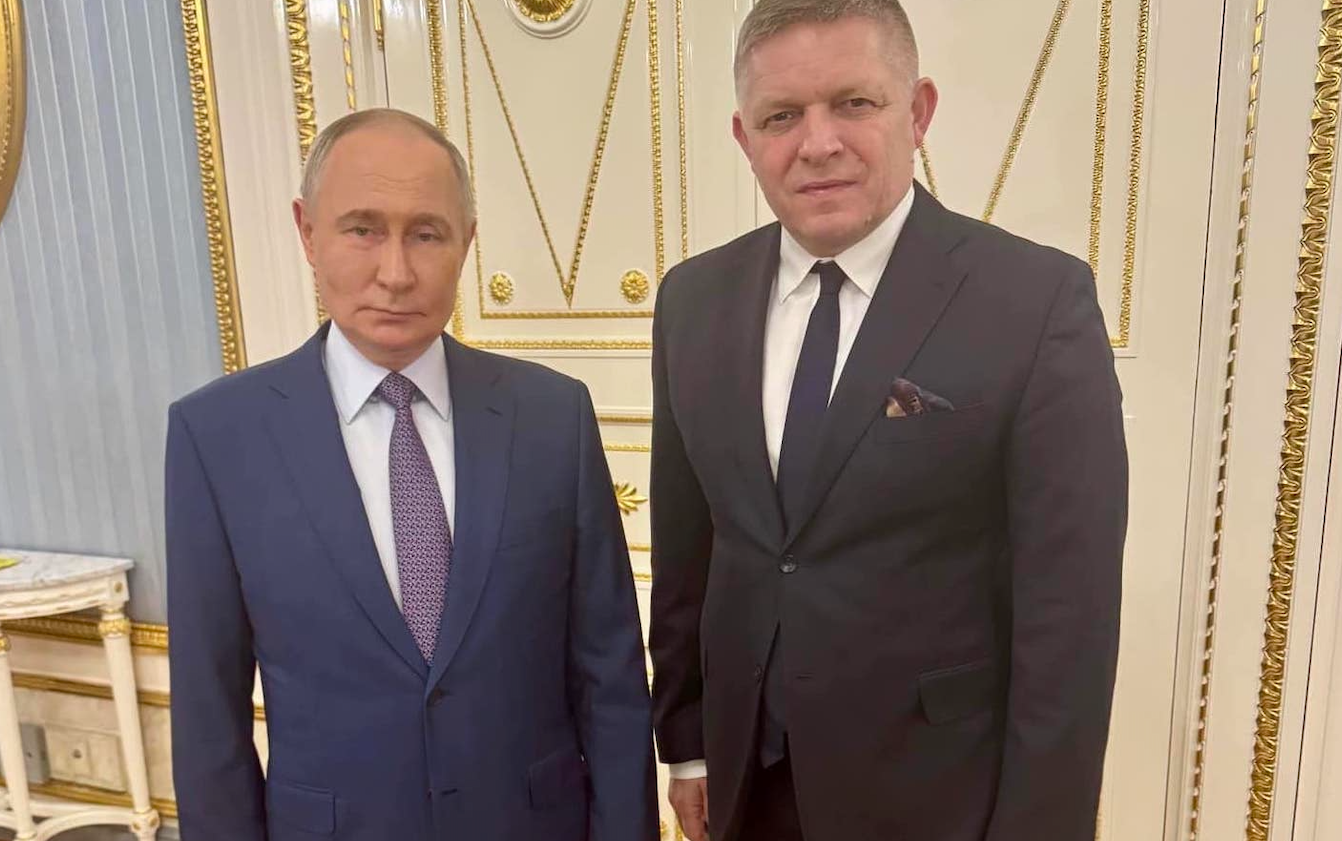Slovak Prime Minister Robert Fico and Russian President Vladimir Putin discussed gas transit, the war in Ukraine, and standardizing “mutual relations” between Russia and Slovakia during their meeting on Dec. 22, Fico said.
Fico held talks with Putin at the Kremlin on Dec. 22 during a visit to Moscow.
The meeting with Putin was “a response” to President Volodymyr Zelensky’s refusal to extend the transit of Russian gas supplies to the European Union via Ukraine, Fico said in a Facebook post following the meeting.
“Putin confirmed the readiness of the Russian Federation to continue supplying gas to the West and Slovakia, which is practically impossible given the position of the Ukrainian president after Jan. 1, 2025,” Fico wrote.
An agreement to allow the transit of gas from Russia to Europe via Ukraine is set to expire on Dec. 31, 2024. Zelensky confirmed on Dec. 19 that Kyiv will not extend the deal.
“We will not engage in extending the transit of Russian gas. We will not give (Russia) the opportunity to earn additional billions on our blood,” Zelensky said.
Fico criticized the decision, warning of a looming gas crisis. Within days, he traveled to Moscow in his first visit since his 2023 reelection. His trip represents the third time a European leader has visited Russia since the full-scale invasion of Ukraine.
In his comments following the meeting, Fico also criticized Zelensky’s support for sanctions against Russia’s nuclear program.
“With such positions, (Zelensky) is financially damaging Slovakia and threatening the production of electricity in nuclear power plants in Slovakia, which is unacceptable,” he said.
According to Fico, he and Putin went on to discuss the war in Ukraine and relations between Moscow and Bratislava.
“In a long conversation … Putin and I exchanged views on the military situation in Ukraine, the possibilities of an early peaceful end to the war, and on mutual relations between the Slovak Republic and the Russian Federation, which I intend to standardize,” he wrote.
Fico, who heads the Slovak government for the fourth time in his political career, has been a vocal opponent of military aid for Ukraine and has close ties to Hungarian Prime Minister Viktor Orban, another Central European populist leader with friendly attitudes toward Putin.
Slovakia and Hungary are both heavily reliant on Russian gas, despite the EU’s efforts to wean itself from Russian fossil fuels amid the full-scale invasion.
Ukraine’s decision to let the transit agreement expire prompted the state-owned energy companies of Slovakia, Hungary, Italy, and Austria to issue a joint declaration calling for the continuation of gas transit.
Slovakia has a long-term contract with Russia’s state-owned energy giant Gazprom and estimates alternative arrangements could cost an additional €220 million ($228.73 million) in transit fees.
Fico said in October that he hopes to resume “economic and standard relations” between Russia and Slovakia after the war in Ukraine ends.
Ukraine war latest: For the first time, Ukraine attacks Russian positions using solely ground, FPV drones
Key developments on Dec. 21-22: * For the first time, Ukraine attacks Russian positions using solely ground, FPV drones * Over 12,000 civilians killed in Ukraine during Russia’s full-scale war, UN says * Two Russian airports suspend flights after Ukrainian drones target Kazan, media, officials r…

